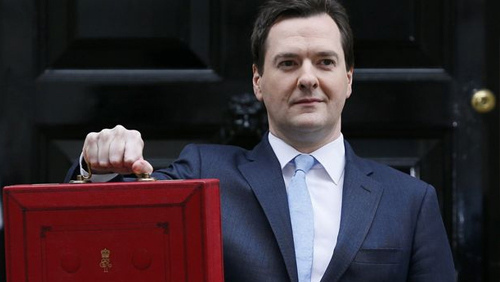Apprenticeships in the UK have taken a major hit in chancellor George Osborne’s Autumn Statement, with a £3bn levy introduced to counter the shortfall caused by the tax credit u-turn.
CBI director-general Carolyn Fairbrain described the size and scope of the levy as a “sting in the tail” of an otherwise positive day for the investment community.
“Business recognises there are tough choices to be made in balancing the books, but many are reaching a tipping point, where the cumulative burden of the living wage, apprenticeship levy and business rates risk hurting competitiveness,” she said.
“The Apprenticeship Levy, set at 0.5%, is a significant extra payroll tax on business and by widening the net it will now catch more smaller firms.
“We welcome the creation of a levy board to give business a voice on how the money is spent and will work with the Government to ensure a focus on quality.”
The levy is to be countered by a £15,000 allowance for all employers. Additionally, there will be no levy for businesses with a turnover of £3m or less. However, some do not see this an adequate compensation for those affected by the move.
Berwin Leighton Paisner partner, tax Neal Todd called it “disappointing” that an additional levy is to be introduced.
“[The government] should be continuing to encourage businesses to come to this country and to employ people in the UK,” he said.
“Relatively small additional taxes are not necessarily a problem. However, it indicates the wrong direction of travel for taxes.
“Coupled with the continued rhetoric on avoidance, multinationals may well question whether the UK will remain a tax friendly environment in the years to come.”
Lee Wade, CEO of Exponential-e, welcomed the government’s commitment to closing the skills gap as a “sharp move”. However, he also warned that the “sliding scale” of the apprenticeship levy could threaten the future of small business apprenticeships.
“Smaller organisations may look to cut off their schemes to avoid tax debt, stifling their capacity to find, nurture and develop skilled staff,” he said.
“Firms should look towards creating recruitment and training academies that prioritise staff development and pay attention to the soft skills and attributes employees bring, as well as their experiences, to overcome the skills chasm.”
Devolved business rates
The other big news for small business was the full devolution of business rates to local government authorities. Under the new rules, which will be fleshed out in the 2016 March budget, all regions will set their own rates and keep 100% of the revenue raised.
The move was largely welcomed, although some remain concerned about how the new legislation will be implemented on the ground. Philip Salter of the Entrepreneurs Network called the policy a “welcome surprise announcement”.
“Devolving rates will stimulate competition between councils and encourage local government to be more responsive to business needs,” he continued.
“However, business leaders will need to be better engaged with local government to ensure councils are fiscally responsible.
“For example, city-wide mayors will be given the power to levy a business rates premium for local infrastructure projects, and as such businesses will need to make sure their views are properly voiced through their Local Enterprise Partnership.”






